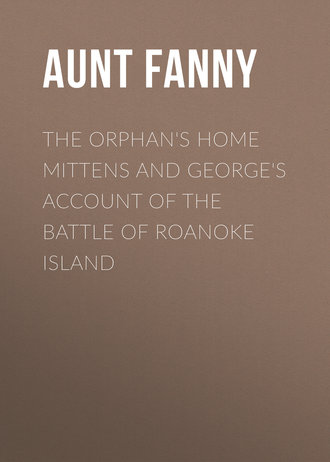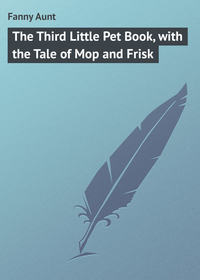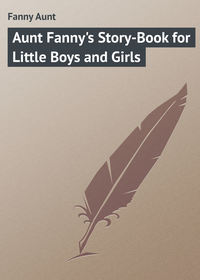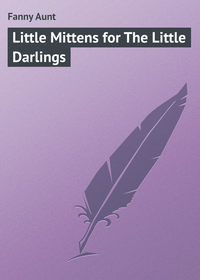
The Orphan's Home Mittens and George's Account of the Battle of Roanoke Island
How many do you guess had been made and given, beside those the little play brought? Just take the six books, turn to the last pages of each, and then count up for yourselves. It will make a very nice little sum in arithmetic.
And, my darlings, it will do more, I hope, and believe. It will show you that children can do a great deal of good, if they only try. If I have proved this to your satisfaction, and if you should ever form or join a children's society to work for the soldiers, or help the poor, I really think you must let me know it, so that I can write you a letter, or come and give you a good, loving kiss.
And now, as my book is already getting too long, I can only tell you that George remained in his beloved General Burnside's division during the spring and summer of this year, 1862; doing his duty well, and winning the respect and love of all who knew him.
At first the General thought he was only a dandified chap, without much fighting in him, because his hair was parted so very evenly down the back of his head, and his gloves and boots were always, the one so snowy white, and the other so brilliantly black. The General did not know, as we do, that our little Johnny had given George a comb, expressly that he might make that very particular parting; and that his habits of scrupulous neatness in dress were a part of West Point and home education, which he would never neglect. But it was not long before the little mother's soldier son was rated as his courage and merits deserved; in proof of which he was soon writing a letter home, with the good news that he had been chosen one of the General's aids, and had had a horse given him, whose merits, in his estimation, were very little inferior to Mr. Bonner's famous horse Lantern.
Ah! how I grieve to part with you, my dear little readers. As I write, I always think of the sweet and bright eyes that will read, and the small hands that will hold my true story book. I wonder to myself if you have good and pure hearts; and then I pray for you all, though I do not know you, and hope that you are obedient, lovely children. Above all, I pray that no written or spoken word of mine will ever do you the least grain of harm. It would make me most wretched, did I think it possible.
Before I say good-by, I must tell you what I saw the other day, in one of the splendid show windows of Ball & Black's magnificent store.
An elegant sword and belt lay on the velvet cover, and above was a sheet of parchment with an inscription, which I went in and asked permission to copy, as I knew you would be delighted to read it. Here it is:
"Presented by the citizens of Lockport to Midshipman Benjamin H. Porter, as a testimony of their appreciation of his gallant conduct at Roanoke Island." (We know something about that, don't we?)
"Midshipman Porter was but seventeen years old, when, at the battle of Roanoke Island, his noble daring elicited the admiration of his superior officer, who exclaimed, 'My brave boy, you have won your epaulettes!'
"He led his battery, six Dahlgren howitzers, through the swamp, and, in the face of a galling fire, continued to load and discharge one of his guns, after every man around him had been shot down; bravely remaining at his post until the enemy was dislodged and had made an unconditional surrender."
Oh! how pleased I was to see this testimony, and touch with my hand the sword that his true and brave hands would clasp.
I had just written the last word, when my little Alice's grandpapa came into the room, and handed her a package, saying, "Here, Monsieur Pop, your uncle John has sent you something by a soldier who came home wounded, and too ill to fight;" and he handed her a little parcel.
This uncle was my dear brother John. He had been in some dreadful battles, and we, like all left at home, suffered constant anxiety about him, dreading that each day might bring bad news.
He had been very ill with the terrible fever, which, I believe, has killed more than the guns of the enemy, and had taken "a cartload or so" of quinine, which is the very bitterest medicine that ever was invented. It ought always to cure, it is so very bad to take. It did cure my brother; and, so far, we were grateful to know, that though foremost in the fight, no bullet had yet touched him.
So Alice eagerly took the parcel, and undid it – my father and I looking on with our eyes very wide open. Inside the first paper were three smaller parcels. She unrolled the smallest first, and out came a little doll's china leg, with the foot broken off.
"Why, how funny!" she exclaimed.
Then the next was quickly opened. Another little china leg, this time with a foot encased in a black gaiter boot, with a straw-colored sole to it – all painted on, of course.
The third parcel contained a china head and neck, very pretty, and quite perfect.
"Oh," cried Alice, "what a pretty doll's head! only she has no seam to her hair. It must be because she is a secession doll."
"We laughed, and wondered what it meant, till we noticed that one of the papers had something written on it. They were printed pages, and seemed to be a report of something; but one of them had a blank side, and on this was written in faint pencil marks —
"Camp near Harrison's Landing,}
August 12, 1862. }
"My Dear Father:
"This, with its accompanying parcel, will be handed to you by a comrade, who has gone home ill. The parcel contains the head and legs of a porcelain doll. I picked them up last week, when out scouting with the regiment, on the right bank of the James river. They had been taken, I suppose, from one of the houses of an F. F. V., and dropped again. I found them on the estate of the Ruffin family, one of whom fired the first gun at Sumter.
"Give it to Alice, with my love, and let her place it in disgrace among her numerous family as 'Miss Secesh.' I will write you by mail to-day or to-morrow.
"Your affectionate son,
"John.""Oh!" said Alice, "I am sorry for the little girl that lost her doll; but I'm glad I've got it. What a good uncle John, to send it to me!" – and she immediately whirled round and made two cheeses, in honor of the event.
"How many dolls will that make?" inquired Grandpa.
"Let me see," she answered, thinking, with her finger on her lip. "Forty-one paper dolls. Then there is Willie, my small china doll; Anna, my large china doll; Baby, my wax doll, that cries, and opens and shuts its eyes; Genevieve Virginie, my new porcelain doll; and Miss Secesh.
"Bless me!" said Grandpa, "what a family to look after! You ought to write down the day you got Miss Secesh – twenty-fourth of August."
"No, Grandpa," said Alice, "it is the twenty-tooth– "
"So it is," cried Grandpa – while I had to run and look out of the window, so that the dear little old monkey should not see me laughing at her funny mistake. She meant the "twenty-second;" but you see she spoke in a hurry.
And now I must really say good-by, my darlings, and throw my pen out of the window.
The door opens. Every one of the Little Mother's children rush in.
"What?!! what is that you say?!"
"Yes, Aunt Fanny! George is made a Captain! Hurrah!!!"
END OF THE SIXTH AND LAST BOOK1
Pronounced croshày.
2
Do not be in a hurry to believe this, as I think you will find it something of a mistake.
3
I obtained permission of one of the editors of the "Independent," to insert this admirable story. Without that permission, it would have been omitted. It was written by Miss Isabella Graham Oakley, Cincinnati, Ohio. I thank her heartily.









